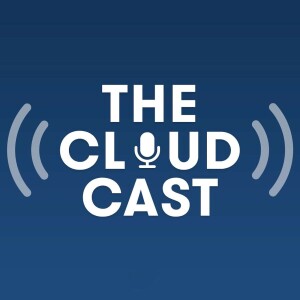
Every few years we have to be reminded that open source isn’t a business model. Let’s talk about the business dynamics that everyone seems to keep forgetting.
SHOW: 816
SHOW TRANSCRIPT:
SHOW VIDEO: https://youtube.com/@TheCloudcastNET
CLOUD NEWS OF THE WEEK - http://bit.ly/cloudcast-cnotw
CHECK OUT OUR NEW PODCAST - "CLOUDCAST BASICS"
SHOW NOTES:
- Adam Jacobs discusses open source and business (The Changelog)
- “figure out how to play nice with competition” (Twitter)
- The will never be another Red Hat - Economics of OSS (a16z)
OPEN SOURCE IS A LICENSE, NOT A BUSINESS MODEL
- There are rules around software licenses (e.g. Apache, GPL, etc.)
- There are no rules about how people feel about software, creators or maintainers
FREE, FREE TIERS, EXTENSIONS, CLONES
- Red Flags: Writes most of the code, took VC funding (multiple rounds)
- Green flags: Lots of diverse (companies) contributors
- Yellow flags: Foundation owns copyright
- “There’s the business side and there’s the hippie side of OSS”
- “I have endless ambitions”
- “I didn’t build a forever entity”
- “When is the rug pull going to happen?”
- If a company takes VC funding, is open source anything more than a marketing vehicle?
- “Docker figured it out and now they are doing like $100M”. Did they?
- When is OSS personal, and when is it a company?
- Will there never be another Red Hat, or just not another Linux?
- How much is too much when determining if a company should give things away for free?
FEEDBACK?
- Email: show at the cloudcast dot net
- Twitter: @cloudcastpod
- Instagram: @cloudcastpod
- TikTok: @cloudcastpod
More Episodes
Lessons Learned from OpenStack
 2021-02-14
2021-02-14
 2021-02-14
2021-02-14
The New Economics of Cloud Infrastructure
 2021-02-10
2021-02-10
 2021-02-10
2021-02-10
Andy Jassy's Legacy at AWS
 2021-02-07
2021-02-07
 2021-02-07
2021-02-07
Automating Analytics Teams
 2021-02-03
2021-02-03
 2021-02-03
2021-02-03
A Transformation Look Ahead for 2021
 2021-01-27
2021-01-27
 2021-01-27
2021-01-27
A Cloud-First Look Ahead for 2021
 2021-01-20
2021-01-20
 2021-01-20
2021-01-20
An Event-Driven Apps Look Ahead for 2021
 2021-01-13
2021-01-13
 2021-01-13
2021-01-13
A Hybrid Cloud Look Ahead for 2021
 2021-01-06
2021-01-06
 2021-01-06
2021-01-06
Introduction to Cloudcast Basics
 2021-01-04
2021-01-04
 2021-01-04
2021-01-04
2020 in Review, 2021 Predictions
 2020-12-23
2020-12-23
 2020-12-23
2020-12-23
AzureStack for Hybrid Cloud
 2020-12-16
2020-12-16
 2020-12-16
2020-12-16
Reviewing AWS re:Invent 2020
 2020-12-09
2020-12-09
 2020-12-09
2020-12-09
The State of Kubernetes
 2020-12-02
2020-12-02
 2020-12-02
2020-12-02
Great Data Models Need Great Features
 2020-11-25
2020-11-25
 2020-11-25
2020-11-25
eBPF & Cilium Cloud-native Networking
 2020-11-18
2020-11-18
 2020-11-18
2020-11-18
Managing SAP in the Cloud
 2020-11-11
2020-11-11
 2020-11-11
2020-11-11
Serverless Data APIs
 2020-11-04
2020-11-04
 2020-11-04
2020-11-04
Continuous Application Profiling
 2020-10-28
2020-10-28
 2020-10-28
2020-10-28
Confidential Computing
 2020-10-21
2020-10-21
 2020-10-21
2020-10-21
Understanding the Jamstack
 2020-10-14
2020-10-14
 2020-10-14
2020-10-14
012345678910111213141516171819
Create your
podcast in
minutes
- Full-featured podcast site
- Unlimited storage and bandwidth
- Comprehensive podcast stats
- Distribute to Apple Podcasts, Spotify, and more
- Make money with your podcast
It is Free
- Privacy Policy
- Cookie Policy
- Terms of Use
- Consent Preferences
- Copyright © 2015-2024 Podbean.com





